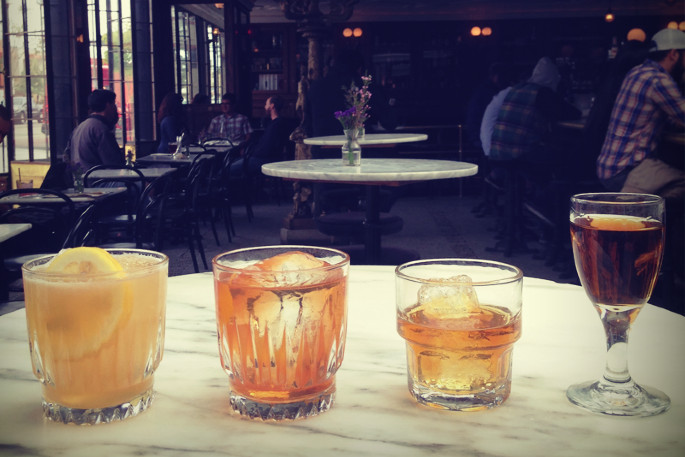Poor alcohol production and cost-cutting can lead to methanol poisoning, but drinking legitimate alcohol is a way to slow the effects until help can be sought, a toxicologist said.
Five people have reportedly died of poisoning in Laos. A New Zealander who is unwell may also be a victim, the Ministry of Foreign Affairs and Trade has said.
Dr Paul Gee, an emergency specialist and toxicologist, told Midday Report that unfortunately, methanol poisoning is not rare in many countries.
"It actually happens all over the world," he said.
"Methanol can get into drinks in bars because it's a by-product of backyard fermentation, so in the normal industrial production of ethanol, drinking alcohol, methanol is actually removed.
"But in this case poor production procedures or lax standards have ended up with methanol in alcohol for consumption."
Dr Gee has treated patients with methanol poisoning before.
"As we've heard with the cases recently, the worst outcome is death.
"We had a patient several years ago, a tourist who was from Bali and had been drinking and got on a plane to come to Christchurch.
"As soon as she hit Christchurch she started to feel unwell. She had racing heart, vision was starting to go, so she came up to the hospital to be treated.
"She ended up in intensive care very close to death, and has been left permanently blind, which is a very sad outcome for her."
Monash University's department of forensic medicine Professor David Ranson told Checkpoint that "this is a very tragic story".
The acid that forms with methanol is what caused the most harm, he said.
"It's the formic acid that causes so many problems, so this is an agent that actually kills cells and as a result it causes really quite significant damage to the body."
"Quite often it takes a day or so for these symptoms to come on, particularly if the source of the methanol has been essentially combined with ethanol."
A lethal dose could be quite small, Ranson said.
"It depends on the amount that's in the drink, actually it's a surprisingly a small amount.
"Even 20-30mls can be really quite dangerous and in some people that could be fatal.
"In fact quite often people finish up having more than that, simply because if they're having several drinks that are all contaminated, it all adds up."
If someone thinks they have ingested methanol, they should get help immediately, Dr Gee said.
"If you are in a foreign country you basically should be aware of where you can get help.
"But one of the first aid things that you can do is get some legitimate alcohol - so, legal alcohol without methanol - can actually stop the production of acid temporarily and buy you time until you can get to a hospital where they've got dialysis in intensive care."
Much of the time methanol is introduced as a cost-cutting measure, Dr Gee said.
"The most likely way that a tourist is likely to get methanol mixed in with their drinks is if they have a cocktail for a mixed drink in a bar in one of these countries.
"In those countries bars often substitute commercially produced alcohol for bootleg alcohol because it's cheaper."
At first, a methanol high might seem like the usual booze effect, but it can quickly turn.
"When the body ingests methanol, it initially thinks it's like ethanol, you'll feel intoxicated, perhaps slightly high, but as the body converts the methanol into an acid you'll get increasingly unwell."
Ranson said there are remedies that can help if they are given in time for methanol poisoning.
"There are some treatments specifically designed to block the enzyme in the body, so that the methanol will not get broken down and cause these nasty agents to be produced.
"And if you can do that fairly early on you can keep the level of these nasty chemicals down, and people will then have a much better chance of survival."
Ranson said the most important thing if you suspect methanol poisoning is, "you have to get to hospital right away."
Checkpoint spoke to the New Zealand Drug Foundation and its principal science adviser said there are no off the shelf rapid tests for methanol in drinks.
The foundation's advice is to only drink canned or bottled drinks with a seal when travelling in Southeast Asia.



0 comments
Leave a Comment
You must be logged in to make a comment.